The BEST episodes of TED Talks season 2016
Every episode of TED Talks season 2016, ranked from best to worst by thousands of votes from fans of the show. The best episodes of TED Talks season 2016!
TED is a nonprofit devoted to Ideas Worth Spreading. It started out (in 1984) as a conference bringing together people from three worlds: Technology, Entertainment, Design. TEDTalks began as a simple attempt to share what happens at TED with the world. Under the moniker "ideas worth spreading," talks were released online. They rapidly attracted a global audience in the millions. Indeed, the reaction was so enthusiastic that the entire TED website has been reengineered around TEDTalks, with the goal of giving everyone on-demand access to the world's most inspiring voices. [TED-Ed and TEDx are separate TVDB series and should NOT be listed here. Episode ordering and dates are sourced from YouTube.]
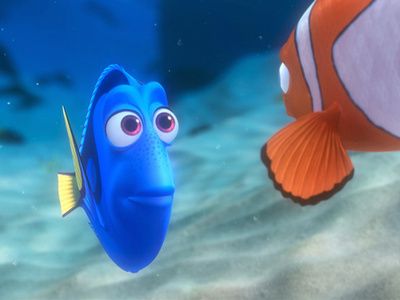
#1 - Danielle Feinberg: The Magic Ingredient That Brings Pixar Movies To Life
Season 2016 - Episode 68 - Aired 4/6/2016
Danielle Feinberg, Pixar's director of photography, creates stories with soul and wonder using math, science and code. Go behind the scenes of Finding Nemo, Toy Story, Brave, WALL-E and more, and discover how Pixar interweaves art and science to create fantastic worlds where the things you imagine can become real. This talk comes from the PBS special 'TED Talks: Science & Wonder.'
Watch Now:Amazon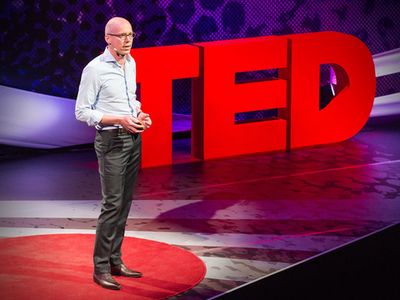
#2 - Olivier Scalabre: The next manufacturing revolution is here
Season 2016 - Episode 156 - Aired 8/22/2016
Economic growth has been slowing for the past 50 years, but relief might come from an unexpected place — a new form of manufacturing that is neither what you thought it was nor where you thought it was. Industrial systems thinker Olivier Scalabre details how a fourth manufacturing revolution will produce a macroeconomic shift and boost employment, productivity and growth.
Watch Now:Amazon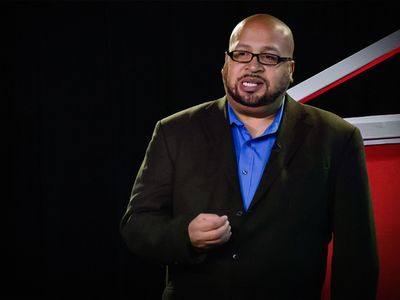
#3 - Christopher Bell: Bring on the female superheroes!
Season 2016 - Episode 162 - Aired 8/30/2016
Why is it so hard to find female superhero merchandise? In this passionate, sparkling talk, media studies scholar (and father of a Star Wars-obsessed daughter) Christopher Bell addresses the alarming lack of female superheroes in the toys and products marketed to kids — and what it means for how we teach them about the world.
Watch Now:Amazon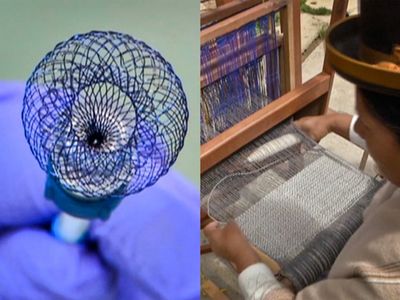
#4 - Franz Freudenthal: A new way to heal hearts without surgery
Season 2016 - Episode 169 - Aired 9/9/2016
At the intersection of medical invention and indigenous culture, pediatric cardiologist Franz Freudenthal mends holes in the hearts of children across the world, using a device born from traditional Bolivian loom weaving. "The most complex problems in our time," he says, "can be solved with simple techniques, if we are able to dream."
Watch Now:Amazon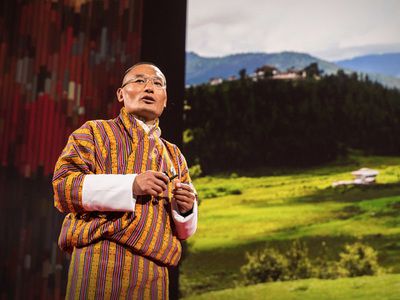
#5 - Tshering Tobgay: This Country Isn't Just Carbon Neutral - It's Carbon Negative
Season 2016 - Episode 49 - Aired 3/11/2016
Deep in the Himalayas, on the border between China and India, lies the Kingdom of Bhutan, which has pledged to remain carbon neutral for all time. In this illuminating talk, Bhutan's Prime Minister Tshering Tobgay shares his country's mission to put happiness before economic growth and set a world standard for environmental preservation.
Watch Now:Amazon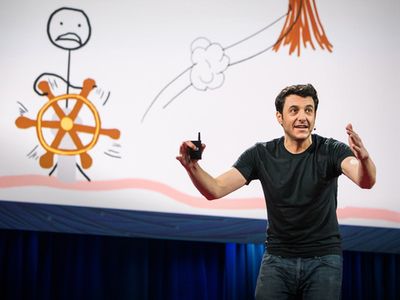
#6 - Tim Urban: Inside The Mind Of A Master Procrastinator
Season 2016 - Episode 52 - Aired 3/15/2016
Tim Urban knows that procrastination doesn't make sense, but he's never been able to shake his habit of waiting until the last minute to get things done. In this hilarious and insightful talk, Urban takes us on a journey through YouTube binges, Wikipedia rabbit holes and bouts of staring out the window - and encourages us to think harder about what we're really procrastinating on, before we run out of time.
Watch Now:Amazon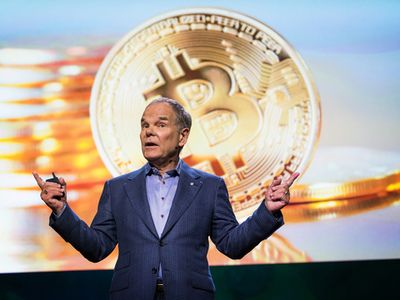
#7 - Don Tapscott: How the blockchain is changing money and business
Season 2016 - Episode 159 - Aired 8/25/2016
What is the blockchain? If you don't know, you should; if you do, chances are you still need some clarification on how it actually works. Don Tapscott is here to help, demystifying this world-changing, trust-building technology which, he says, represents nothing less than the second generation of the internet and holds the potential to transform money, business, government and society.
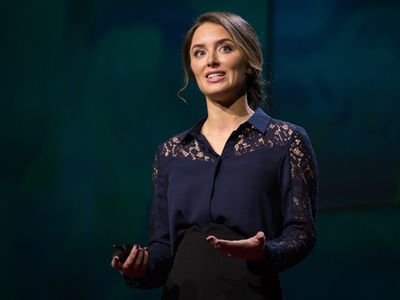
#8 - Bettina Warburg: How the blockchain will radically transform the economy
Season 2016 - Episode 218 - Aired 11/15/2016
Say hello to the decentralized economy -- the blockchain is about to change everything. In this lucid explainer of the complex (and confusing) technology, Bettina Warburg describes how the blockchain will eliminate the need for centralized institutions like banks or governments to facilitate trade, evolving age-old models of commerce and finance into something far more interesting: a distributed, transparent, autonomous system for exchanging value.
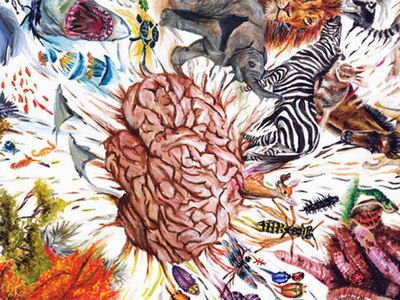
#9 - Oded Shoseyov: How we're harnessing nature's hidden superpowers
Season 2016 - Episode 182 - Aired 9/28/2016
What do you get when you combine the strongest materials from the plant world with the most elastic ones from the insect kingdom? Super-performing materials that might transform ... everything. Nanobiotechnologist Oded Shoseyov walks us through examples of amazing materials found throughout nature, in everything from cat fleas to sequoia trees, and shows the creative ways his team is harnessing them in everything from sports shoes to medical implants.
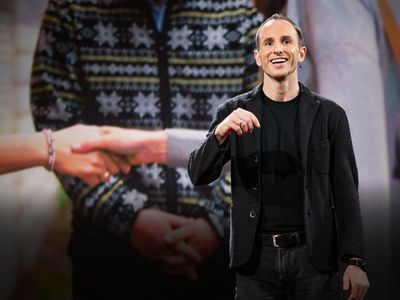
#10 - Joe Gebbia: How Airbnb Designs For Trust
Season 2016 - Episode 51 - Aired 3/14/2016
Joe Gebbia, the co-founder of Airbnb, bet his whole company on the belief that people can trust each other enough to stay in one another's homes. How did he overcome the stranger-danger bias Through good design. Now, 123 million hosted nights (and counting) later, Gebbia sets out his dream for a culture of sharing in which design helps foster community and connection instead of isolation and separation.
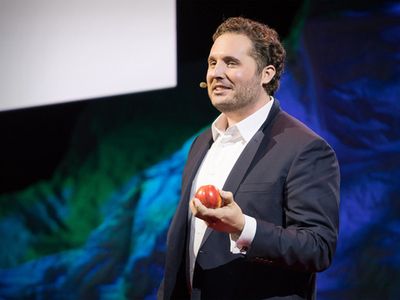
#11 - Caleb Harper: This computer will grow your food in the future
Season 2016 - Episode 46 - Aired 3/8/2016
What if we could grow delicious, nutrient-dense food, indoors anywhere in the world Caleb Harper, director of the Open Agriculture Initiative at the MIT Media Lab, wants to change the food system by connecting growers with technology. Get to know Harper's 'food computers' and catch a glimpse of what the future of farming might look like.
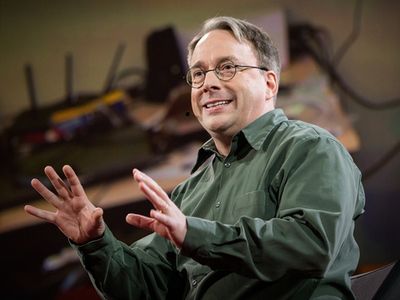
#12 - Linus Torvalds: The Mind Behind Linux
Season 2016 - Episode 71 - Aired 4/8/2016
Linus Torvalds transformed technology twice - first with the Linux kernel, which helps power the Internet, and again with Git, the source code management system used by developers worldwide. In a rare interview with TED Curator Chris Anderson, Torvalds discusses with remarkable openness the personality traits that prompted his unique philosophy of work, engineering and life. 'I am not a visionary, I'm an engineer,' Torvalds says. 'I'm perfectly happy with all the people who are walking around and just staring at the clouds ... but I'm looking at the ground, and I want to fix the pothole that's right in front of me before I fall in.'
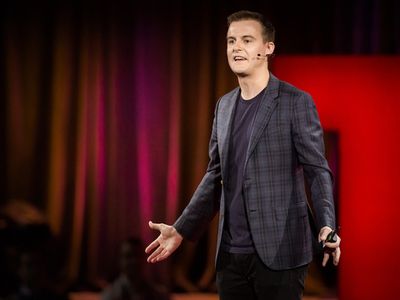
#13 - Hugh Evans: What Does It Mean To Be A Citizen Of The World?
Season 2016 - Episode 72 - Aired 4/11/2016
Hugh Evans started a movement that mobilizes 'global citizens,' people who self-identify first and foremost not as members of a state, nation or tribe but as members of the human race. In this uplifting and personal talk, learn more about how this new understanding of our place in the world is galvanizing people to take action in the fights against extreme poverty, climate change, gender inequality and more. 'These are ultimately global issues,' Evans says, 'and they can only be solved by global citizens demanding global solutions from their leaders.'
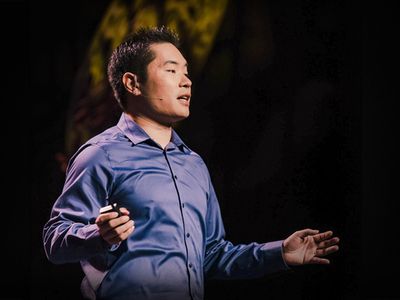
#14 - Jia Jiang: What I learned from 100 days of rejection
Season 2016 - Episode 232 - Aired 12/7/2016
Jia Jiang adventures boldly into a territory so many of us fear: rejection. By seeking out rejection for 100 days -- from asking a stranger to borrow $100 to requesting a "burger refill" at a restaurant -- Jiang desensitized himself to the pain and shame that rejection often brings and, in the process, discovered that simply asking for what you want can open up possibilities where you expect to find dead ends.
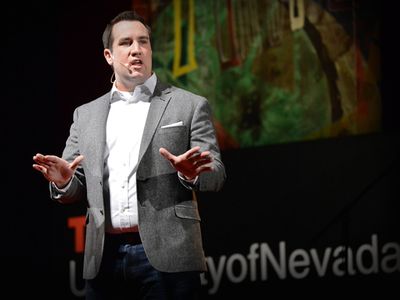
#15 - David Burkus: Why you should know how much your coworkers get paid
Season 2016 - Episode 176 - Aired 9/20/2016
How much do you get paid? How does it compare to the people you work with? You should know, and so should they, says management researcher David Burkus. In this talk, Burkus questions our cultural assumptions around keeping salaries secret and makes a compelling case for why sharing them could benefit employees, organizations and society.

#16 - James Veitch: The agony of trying to unsubscribe
Season 2016 - Episode 165 - Aired 9/2/2016
It happens to all of us: you unsubscribe from an unwanted marketing email, and a few days later another message from the same company pops up in your inbox. Comedian James Veitch turned this frustration into whimsy when a local supermarket refused to take no for an answer. Hijinks ensued.
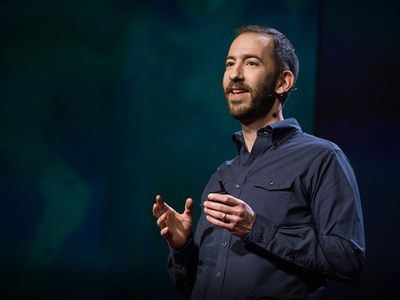
#17 - Jonathan Tepperman: The risky politics of progress
Season 2016 - Episode 164 - Aired 9/1/2016
Global problems such as terrorism, inequality and political dysfunction aren't easy to solve, but that doesn't mean we should stop trying. In fact, suggests journalist Jonathan Tepperman, we might even want to think riskier. He traveled the world to ask global leaders how they're tackling hard problems — and unearthed surprisingly hopeful stories that he's distilled into three tools for problem-solving.
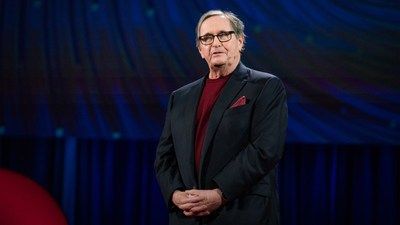
#18 - Brian Little: Who Are You, Really? The Puzzle Of Personality
Season 2016 - Episode 125 - Aired 6/23/2016
What makes you, you Psychologists like to talk about our traits, or defined characteristics that make us who we are. But Brian Little is more interested in moments when we transcend those traits - sometimes because our culture demands it of us, and sometimes because we demand it of ourselves. Join Little as he dissects the surprising differences between introverts and extroverts and explains why your personality may be more malleable than you think.
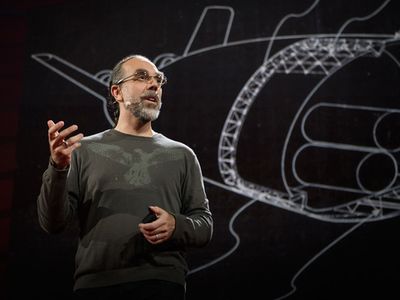
#19 - Astro Teller: The Unexpected Benefit Of Celebrating Failure
Season 2016 - Episode 75 - Aired 2/1/2016
"Great dreams aren't just visions," says Astro Teller, "They're visions coupled to strategies for making them real." The head of X (formerly Google X), Teller takes us inside the "moonshot factory," as it's called, where his team seeks to solve the world's biggest problems through experimental projects like balloon-powered Internet and wind turbines that sail through the air. Find out X's secret to creating an organization where people feel comfortable working on big, risky projects and exploring audacious ideas.
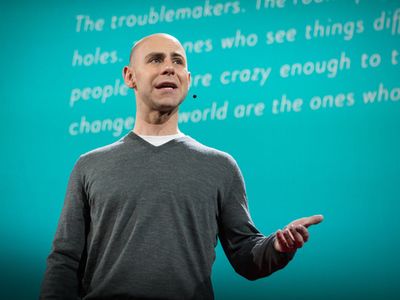
#20 - Adam Grant: The Surprising Habits Of Original Thinkers
Season 2016 - Episode 65 - Aired 4/1/2016
How do creative people come up with great ideas? Organizational psychologist Adam Grant studies "originals": thinkers who dream up new ideas and take action to put them into the world. In this talk, learn three unexpected habits of originals — including embracing failure. "The greatest originals are the ones who fail the most, because they're the ones who try the most," Grant says. "You need a lot of bad ideas in order to get a few good ones."

#21 - Latif Nasser: You Have No Idea Where Camels Really Come From
Season 2016 - Episode 58 - Aired 3/23/2016
Camels are so well adapted to the desert that it's hard to imagine them living anywhere else. But what if we have them pegged all wrong What if those big humps, feet and eyes were evolved for a different climate and a different time In this talk, join Radiolab's Latif Nasser as he tells the surprising story of how a very tiny, very strange fossil upended the way he sees camels, and the world. This talk comes from the upcoming PBS special TED Talks: Science & Wonder, which premieres March 30th at 10 p.m. ET.
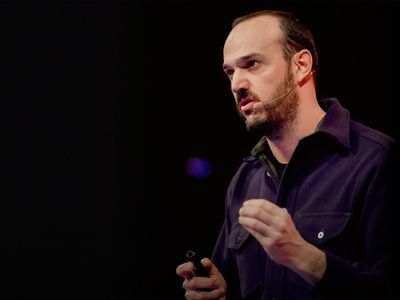
#22 - Tasos Frantzolas: Everything you hear on film is a lie
Season 2016 - Episode 204 - Aired 10/27/2016
Sound design is built on deception -- when you watch a movie or TV show, nearly all of the sounds you hear are fake. In this audio-rich talk, Tasos Frantzolas explores the role of sound in storytelling and demonstrates just how easily our brains are fooled by what we hear.
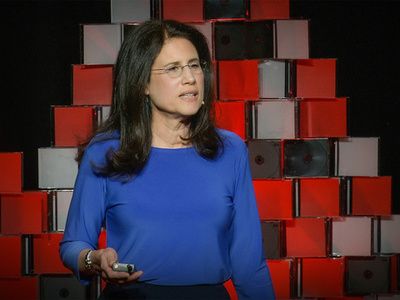
#23 - Carol Cohen: How To Get Back To Work After A Career Break
Season 2016 - Episode 57 - Aired 3/22/2016
If you've taken a career break and are now looking to return to the workforce, would you consider taking an internship Career reentry expert Carol Fishman Cohen thinks you should. In this talk, hear about Cohen's own experience returning to work after a career break, her work championing the success of 'relaunchers' and how employers are changing how they engage with return-to-work talent.

#24 - Vanessa Ruiz: The spellbinding art of human anatomy
Season 2016 - Episode 160 - Aired 8/26/2016
Vanessa Ruiz takes us on an illustrated journey of human anatomical art over the centuries, sharing captivating images that bring this visual science — and the contemporary artists inspired by it — to life. "Anatomical art has the power to reach far beyond the pages of a medical textbook," she says, "connecting our innermost selves with our bodies through art."
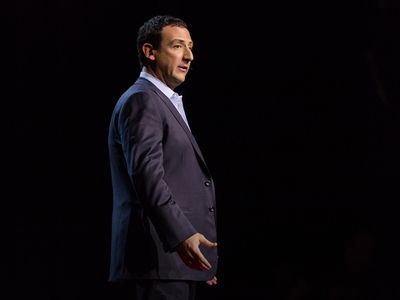
#25 - Isaac Lidsky: What reality are you creating for yourself?
Season 2016 - Episode 188 - Aired 10/6/2016
Reality isn't something you perceive; it's something you create in your mind. Isaac Lidsky learned this profound lesson firsthand, when unexpected life circumstances yielded valuable insights. In this introspective, personal talk, he challenges us to let go of excuses, assumptions and fears, and accept the awesome responsibility of being the creators of our own reality.